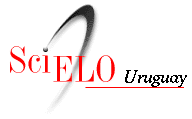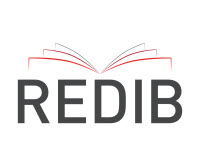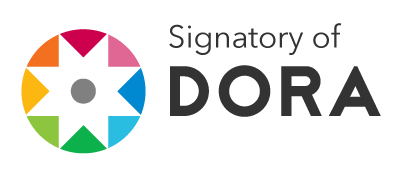Agendas abiertas de investigación y el abordaje de problemas en interacción social: la experiencia de la Universidad de la República de Uruguay
Resumen
Abrir las agendas de investigación a los problemas, demandas y necesidades de conocimiento de la sociedad supone la participación y colaboración abierta entre la comunidad académica y actores no académicos. Esto impone un conjunto de desafíos para las políticas de estímulo a la investigación abierta y de su evaluación. Con base en la experiencia de la Universidad de la República de Uruguay, se describen y analizan las formas en que las políticas universitarias de estímulo a la investigación en todas las áreas del conocimiento y la creación artística y cultural contribuyen al desarrollo de procesos abiertos de producción y uso socialmente valioso del conocimiento. Además, se reflexiona sobre las características específicas de los procesos de evaluación involucrados en la selección de las propuestas de investigación abierta y sobre los desafíos para ampliar el alcance de la política universitaria en la conformación de agendas abiertas de investigación, participativas y en diálogo con todos los actores sociales interesados en los resultados de investigación y las soluciones exploradas. Este trabajo aporta conocimiento sobre la experiencia universitaria de ciencia abierta, en particular sobre la promoción de agendas abiertas de investigación.
Descargas
Citas
Alzugaray, S., Bianco, M., Goñi, M., Mederos, L., Sutz, J., & Robaina, S. (2014). Investigación e Innovación orientadas a la Inclusión Social: análisis reflexivo de un proceso experimental. En M. Bianco, & J. Sutz, Veinte años de políticas de investigación en la Universidad de la Republica: aciertos, dudas y aprendizajes (págs. 187-208). Montevideo: Universidad de la República, Ediciones Trilce. Recuperado de https://www.colibri.udelar.edu.uy/jspui/bitstream/20.500.12008/4149/1/Libro_Veinte_a%C3%B1os_de_pol%C3%ADticas_de_investigaci%C3%B3n_en_la_Universidad_de_la_Rep%C3%BAblica.pdf
ANII. (2018). Sistema Nacional de Investigadores . Montevideo: Unidad de Evaluación y Monitoreo, ANII. Recuperado de https://www.anii.org.uy/upcms/files/listado-documentos/documentos/informe-de-monitoreo-sistema-nacional-de-investigadores-2008-2018.pdf
Arocena , R., & Sutz, J. (2010). Weak knowledge demand in the South: learning divides and innovation policies. Science and Public Policy, 37(8), 571-582.
Arza, V., Fressoli, M., & López, E. (2017). Ciencia Abierta en Argentina: un mapeo de experiencias actuales. Ciencia, Docencia y Tecnología, 28(55), 78-114. Recuperado de https://pcient.uner.edu.ar/index.php/cdyt/article/view/242/296
Arza, V., Fressoli, M., & Sebastian, S. (2016). Hacia una ciencia abierta en Argentina: de las experiencias a las políticas públicas. Documento de Trabajo, Buenos Aires: Fundación CENIT / CIECTI - Centro de Investigaciones para la Transformación. Recuperado de http://cdi.mecon.gov.ar/bases/doc/cenit/dt62.pdf
Babini, D., & Rovelli, L. (2020). Tendencias recientes en las políticas científicas de ciencia abierta y acceso abierto en Iberoamérica. Buenos Aires: CLACSO.
Bianco, M., Gras, N., & Sutz, J. (2016). Academic Evaluation: Universal Instrument? Tool for Development? Minerva, 54(4), 399-421. doi:10.1007/s11024-016-9306-9
Cohanoff, C., & Mederos, L. (2020). Espacios interactivos de aprendizaje y circuitos innovativos en contextos periféricos. Análisis de la vinculación entre la academia y una empresa pública en Uruguay (2008-2018). Revista CTS, 15(44), 221-252.
Cohanoff, C., Mederos, L., & Simón, L. (2014). La Universidad vinculada y sus desafíos. En M. Bianco, & J. Sutz, Veinte años de políticas de investigación en la Universidad de la República: aciertos, dudas y aprendizajes (págs. 85-106). Montevideo: Universidad de la República, Ediciones Trilce. Recuperado de https://www.colibri.udelar.edu.uy/jspui/bitstream/20.500.12008/4149/1/Libro_Veinte_a%C3%B1os_de_pol%C3%ADticas_de_investigaci%C3%B3n_en_la_Universidad_de_la_Rep%C3%BAblica.pdf
CSIC. (2020). Informe de evaluación del Programa Conocimiento especializado para enfrentar la emergencia planteada por el COVID 19 y sus impactos. Recuperado de https://www.csic.edu.uy/sites/csic/files/informes_de_evaluacion/Informe%20final%20proyectos%20COVID_2020_CDC.pdf
Dai, Q., Shin, E., & Smith, C. (2018). Open and inclusive collaboration in science: a framework. OECD. doi:10.1787/2dbff737-en
De Filippo, D., & D’Onofrio, M. (2019). Alcances y limitaciones de la ciencia abierta en Latinoamérica: análisis de las políticas públicas y publicaciones científicas de la región. Hipertext.net,(19), 32-48. doi:10.31009/hipertext.net.2019.i19.03
Fecher, B., & Friesike, S. (2014). Open Science: One term, five schools of thought. En S. Bartling, & S. Friesike, Opening Science. (págs. 17-47). Springer, Cham. doi:10.1007/978-3-319-00026-8_2
Freeman, C. (1994). Innovation and Growth. En M. Dodgson, & R. Rothwell (Edits.), Handbook of Industrial Innovation (págs. 78-93). Aldershot: Elgar.
Freeman, C. (2000). Social Inequality, technology and economic growth. En P. Senker, & S. Wyatt (Edits.), Technology and Inequality. London: Routledge.
Gläser, J., & Laudel, G. (2007). Evaluation Without Evaluators: The Impact of Funding Formulae on Australian University Research. En R. Whitley, & J. Gläser, The changing governance of the sciences. The Advent of Research Evaluation Systems. Netherlands: Springer.
Gras, N. (2018). La evaluación de la investigación y su relación con la producción de conocimiento: un análisis estructural para el Sistema Nacional de Investigadores de México. Tesis de Doctorado , UAM-X, Ciudad de México. Recuperado de http://biblioteca.xoc.uam.mx/tesis.htm?fecha=00000000&archivo=cdt115520owqe.pdf&bibliografico=181106
Gras, N. (2021). Capacidades de investigación e innovación: la contribución de la Universidad de la República y la crisis por COVID-19 en Uruguay. Universidades, 72(90), 79-97. doi:10.36888/udual.universidades.2021.90.585
Gras, N., Dutrénit, G., & Vera-Cruz, M. (2017). Innovaciones inclusivas: un modelo basado en agentes. En J. Rodríguez, & M. Gómez, El proceso de modelado en economía y ciencias de la gestión (págs. 57-100). Ciudad de México: Universidad Michoacana de San Nicolás de Hidalgo,.
Gras, N., Dutrénit, G., & Vera-Cruz, M. (2019). A causal model of inclusive innovation for healthcare solutions: a methodological approach to implement a new theoretical vision of social interactions and policies, Innovation and Development. Innovation and Development, 9(2), 261-286. doi:10.1080/2157930X.2019.1567817
Kish, L. (2004). Statistical Design for Research. New Jersey: Wiley-Interscience .
Naciones Unidas. (s.f.). Objetivos de Desarrollo Sostenible. Recuperado de https://www.un.org/sustainabledevelopment/es/sustainable-development-goals/
Sánchez, A. (2017). Ciencia Abierta: elementos conceptuales. Unidad de Diseño y Evaluación de Políticas, Colciencias.
Srinivas, S., & Sutz, J. (2008). Developing countries and innovation: Searching for a new analytical approach. Technology in Society, 30(2), 129-140. doi:10.1016/j.techsoc.2007.12.003
Sutz, J., Tomassini, C., Goñi, M., & Rodales, M. (2019). Ten Years of research and innovation for social inclusion in the Uruguayan public University: Policy lessons learned. En J. Howaldt, C. Kaletka, A. Schröder, & M. Zirngiebl, Atlas of Social Innovation. 2nd Volume: A world of new practices (págs. 160-163). Dortmund: TU Dortmund University.
Unidad Académica de la CSIC. (2018). Relatoría del taller de trabajo y reflexión sobre la evaluación académica. Montevideo. Recuperado de http://www.universidad.edu.uy/prensa/renderItem/itemId/42610/refererPageId/445
Unidad Académica de la CSIC. (2020). Memoria CSIC 2019. Montevideo: CSIC Udelar. Recuperado de https://www.csic.edu.uy/content/memoria-csic-2019
Udelar. (2020). Propuesta al país 2020-2024. Plan estratégico de desarrollo de la Universidad de la República. Montevideo, Uruguay: Ediciones Universitarias, Universidad de la República.
Unesco. (2021). Recommendation on Open Science -draft text, provisionally adopted-. Unesco.
Van Zwanenberg, P., Fressoli, M., Arza, V., Smith, A., & Marin, A. (2017). Open and Collaborative Developments. Brighton: STEPS Centre.
Whitley, R. (2007). Changing Governance of the Public Sciences: The Consequences of Establishing Research Evaluation Systems for Knowledge Production in Different Countries and Scientific Fields. En R. Whitley, & J. Gläser, The changing governance of the sciences. The Advent of Research Evaluation Systems. Netherlands: Springer.
Derechos de autor 2022 Natalia Gras, Claudia Cohanoff

Esta obra está bajo licencia internacional Creative Commons Reconocimiento 4.0.







.jpg)




















